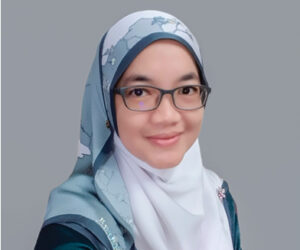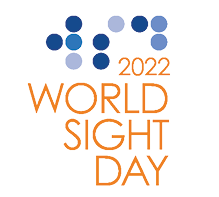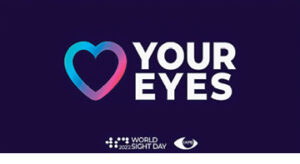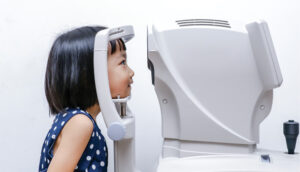Misconceptions about deteriorating vision are worrying and can lead to severe implications, including causing blindness
Eye care is not prioritised by Malaysians because, unlike heart disease, diabetes and strokes, eye conditions are typically not related to death.

Consultant ophthalmologist at Hospital Sultanah Nur Zahirah (HSNZ) in Kuala Terengganu Dr Nor Anita said many people were unaware that comorbidities like diabetes, hypertension and high cholesterol could affect their visual acuity and vision directly or indirectly.
“There is also a misconception that poor vision is part of ageing. Most believe that their vision will slowly deteriorate when they get old and therefore do not come forward for treatment. This is incorrect,” said Dr Nor Anita who is also World Sight Day (WSD) 2022 Coordinator.
 Therefore, she said, the ‘Love Your Eyes’ themed WSD campaign encourages individuals to prioritise their eye health whilst advocating for accessible, affordable and available eye care worldwide.
Therefore, she said, the ‘Love Your Eyes’ themed WSD campaign encourages individuals to prioritise their eye health whilst advocating for accessible, affordable and available eye care worldwide.
According to her, cataracts are the primary cause of poor vision in older people. However, it is easily treatable with cataract surgery which only takes about 20 minutes, and patients can regain their vision.
“So, if people don’t seek treatment for their poor vision and accept it as a natural part of ageing, they will eventually go blind.
“Similarly, for diabetic retinopathy and glaucoma, patients do not see the need to adhere to their medication and stop attending appointments just because the condition is painless.
“Additionally, parents do not prioritise their children’s need for eyeglasses to correct their vision. Some people can’t afford eyeglasses. This is very sad because reduced vision will heavily impact children’s learning potential.”
Heightening public awareness
A key World Health Organisation (WHO) recommendation is to strengthen general awareness and engage and empower people and communities.
“There are a few ways of doing it. First is sharing eye care health promotions and education through radio talks and mass media. Nowadays, I believe sharing info through social media platforms such as Twitter, Instagram, and Facebook is more effective.
She emphasised that for the awareness campaigns to be effective, they must be conducted frequently because people’s attention spans are short these days.
“They also do not take time to read. Pamphlets may, therefore, not be very effective, whereas infographics will. That’s why we think E-posters with infographics regarding eye health would have more impact than pamphlets and talk shows.
“However, to perform and sustain this awareness movement is quite challenging for us because of our busy schedule.”
She also believes that the higher authorities, particularly government agencies, need to be engaged to make eye awareness activities more effective by promoting the importance of eye care in achieving a better quality of life and contributing to a healthy and productive community.
“We also need support to have more eye care facilities, especially for those underprivileged and remote areas. Collaboration with government agencies, NGOs, and community leaders would help us improve eye care service provision.”

‘Love Your Eyes’ campaign
Dr Nor Anita said The International Agency for the Prevention of Blindness (IAPB) had listed four Ps for the ‘Love Your Eyes’ campaign;
1. Prevent
A healthy lifestyle and eating habits can prevent many eye diseases and sight loss. A healthy diet full of vitamins A, C and E and minerals like zinc and lutein can help promote eye health and lower the risk of eye diseases.
A healthy lifestyle is as simple as maintaining a healthy weight, watching blood sugar, blood pressure and cholesterol level, not smoking, and reducing alcohol consumption. This is because comorbidities such as diabetes, hypertension and high cholesterol can, directly and indirectly, affect vision and results in low vision and blindness.
2. Protect
The campaign encourages people to protect their eyes to prevent ocular injury. Wearing sunglasses will protect the eyes from harmful ultraviolet radiation from the sun, which contributes to the development of cataracts and macular degeneration.
Meanwhile, protective eyewear such as goggles, face shields and safety glasses are also essential in work settings to prevent ocular injury, especially when exposed to flying objects, chemical splashes and radiation.
Next, practice good eye hygiene for better eye health. Consult your eye care provider on safe eye cosmetics and practice the 20-20-20 rule to minimise digital eye strain.
3. Preserve
To preserve clear vision, get regular comprehensive eye exams. A thorough eye examination includes eye care professionals obtaining thorough medical and family history to understand potential risk factors before examining for vision, eye strength, and overall eye health.
4. Prioritise
Ensure that eye examinations are a part of your routine medical examination. Prioritise your eye health and consider “Love Your Eyes” a life goal. Educate your family, loved ones, and community regarding the importance of eyes and vision
It is encouraged to have a regular eye examination at least once a year, especially for those above 40 years old and those with diabetes. Parents should also ensure their children’s eyes are checked because we now have many eye and vision problems among children following the increased use of gadgets.
HSNZ is the host of Malaysia’s WSD celebration this year and Dr Nor Anita shared that several activities were being planned in conjunction with the celebration. Health Minister Khairy Jamaluddin is scheduled to officiate the national WSD 2022 celebrations at HSNZ. – The Health
Love your eyes

 World Sight Day (WSD) is observed annually on the second Thursday of October and is an international day of awareness to focus attention on the global issue of eye health. It is coordinated by the International Agency for the Prevention of Blindness (IAPB).
World Sight Day (WSD) is observed annually on the second Thursday of October and is an international day of awareness to focus attention on the global issue of eye health. It is coordinated by the International Agency for the Prevention of Blindness (IAPB).
WSD 2022 falls on Oct 13, and building on the success of last year’s campaign, which saw over 3.5 million pledges to prioritise eye health, the IAPB announced that WSD 2022 will continue with the previous theme “Love Your Eyes.”
Malaysia’s WSD celebration this year is hosted by the Hospital Sultanah Nur Zahirah’s (HSNZ) Ophthalmology Department in Kuala Terengganu.
Coordinator Dr Nor Anita, HSNZ consultant ophthalmologist, said: “Nearly everyone will experience an eye health issue at least once in their lifetime. However, more than a billion people worldwide are unaware and do not have access to eye care services to ensure clear, healthy vision.
“We want to focus the world’s attention on eye health as a global issue. As such, during WSD, many activities are organised to raise awareness of eye health amongst individuals, families and communities.
“WSD is also a platform to influence decision-makers to prioritise eye health initiatives. We want organisations and the public to unite to encourage governments, corporations and institutions to actively call for universal access to eye health and help activate demand for eye health services.”
WSD 2022 celebration in Malaysia
Dr Nor Anita shared that several activities are being planned in conjunction with the celebration.
“Firstly, we will have a public forum on diabetes and blindness. This is because the National Health and Morbidity Survey (NHMS) 2019 revealed that one out of five people in Malaysia has diabetes, and almost half are unaware of the affliction.
“Diabetes can cause permanent blindness. But it is avoidable if the diabetes is controlled and the changes in the eyes are detected early. So, we aim to raise awareness of diabetes and blindness.
She continued: “We are also conducting a mass free eye screening for adults and children to detect any eye problem early and ensure that they can be referred for treatment if needed.
“First, we will conduct a visual test to examine vision quality. Then we will examine for diseases such as cataracts, glaucoma or diabetic retinopathy. For the children, we will also check whether they have a refractive error and require glasses or not.
 The mass eye screening programme will be held at Taman Tamadun Islam Convention Center and will be open to the public. Schools and kindergartens were also invited to bring the children for eye screening.
The mass eye screening programme will be held at Taman Tamadun Islam Convention Center and will be open to the public. Schools and kindergartens were also invited to bring the children for eye screening.
“Next, we also have a booth and poster exhibition to raise public awareness on eye health. To make it more interesting, the exhibition will also have quizzes, colouring activities for children, and low vision simulation activities to allow the general public to have a simulated experience of having low vision and blindness.
“Besides that, we also have an E-poster competition among the Ministry of Health’s (MoH) eye departments throughout the country. The E-poster competition aims to produce informative posters promoting eye health on social media platforms.”– The Health







